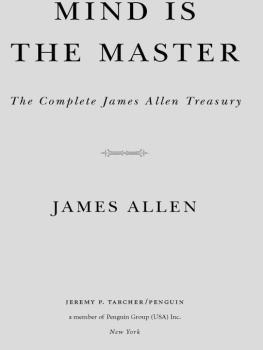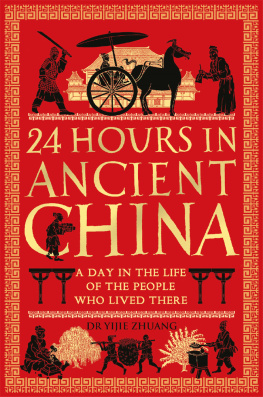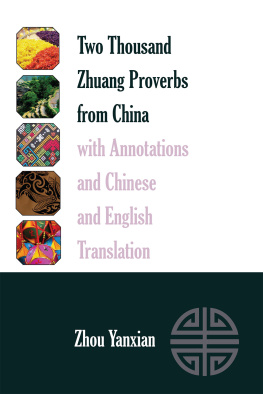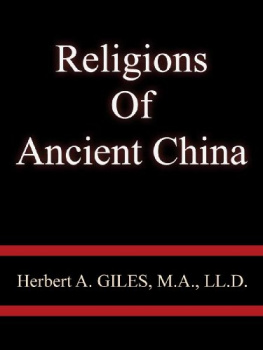CHINA AND THE CHINESE
THE CHINESE LANGUAGE
If the Chinese people were to file one by one past a given point, the interesting procession would never come to an end. Before the last man of those living to-day had gone by, another and a new generation would have grown up, and so on for ever and ever.
The importance, as a factor in the sum of human affairs, of this vast nation,of its language, of its literature, of its religions, of its history, of its manners and customs,goes therefore without saying. Yet a serious attention to China and her affairs is of very recent growth. Twenty-five years ago there was but one professor of Chinese in the United Kingdom of Great Britain and Ireland; and even that one spent his time more in adorning his profession than in imparting his knowledge to [4] classes of eager students. Now there are all together five chairs of Chinese, the occupants of which are all more or less actively employed. But we are still sadly lacking in what Columbia University appears to have obtained by the stroke of a generous pen,adequate funds for endowment. Meanwhile, I venture to offer my respectful congratulations to Columbia University on having surmounted this initial difficulty, and also to prophesy that the foresight of the liberal donor will be amply justified before many years are over.
I have often been asked if Chinese is, or is not, a difficult language to learn. To this question it is quite impossible to give a categorical answer, for the simple reason that Chinese consists of at least two languages, one colloquial and the other written, which for all practical purposes are about as distinct as they well could be.
Colloquial Chinese is a comparatively easy matter. It is, in fact, more easily acquired in the early stages than colloquial French or German. A student will begin to speak from the very first, for the simple reason that there is no other way. There are no Declensions or Conjugations [5] to be learned, and consequently no Paradigms or Irregular Verbs.
In a day or two the student should be able to say a few simple things. After three months he should be able to deal with his ordinary requirements; and after six months he should be able to chatter away more or less accurately on a variety of interesting subjects. A great deal depends upon the method by which he is taught.
The written or book language, on the other hand, may fairly be regarded as a sufficient study for a lifetime; not because of the peculiar script, which yields when systematically attacked, but because the style of the book language is often so extremely terse as to make it obscure, and sometimes so lavishly ornate that without wide reading it is not easy to follow the figurative phraseology, and historical and mythological allusions, which confront one on every page.
There are plenty of men, and some women, nowadays, who can carry on a conversation in Chinese with the utmost facility, and even with grace. Some speak so well as to be practically indistinguishable from Chinamen.
[6] There are comparatively few men, and I venture to say still fewer, if any, women, who can read an ordinary Chinese book with ease, or write an ordinary Chinese letter at all.
Speaking of women as students of Chinese, there have been so far only two who have really placed themselves in the front rank. It gives me great pleasure to add that both these ladies, lady missionaries, were natives of America, and that it was my privilege while in China to know them both. In my early studies of Chinese I received much advice and assistance from one of them, the late Miss Lydia Fay. Later on, I came to entertain a high respect for the scholarship and literary attainments of Miss Adle M. Fielde, a well-known authoress.
Before starting upon a course of colloquial Chinese, it is necessary for the student to consider in what part of China he proposes to put his knowledge into practice. If he intends to settle or do business in Peking, it is absolute waste of time for him to learn the dialect of Shanghai. Theoretically, there is but one language spoken by the Chinese people in China proper,over an area of some two million square miles, say twenty-five times the area of [7] England and Scotland together. Practically, there are about eight well-marked dialects, all clearly of a common stock, but so distinct as to constitute eight different languages, any two of which are quite as unlike as English and Dutch.
These dialects may be said to fringe the coast line of the Empire of China. Starting from Canton and coasting northward, before we have left behind us the province in which Canton is situated, Kuangtung, we reach Swatow, where a totally new dialect is spoken. A short run now brings us to Amoy, the dialect of which, though somewhat resembling that of Swatow, is still very different in many respects. Our next stage is Foochow, which is in the same province as Amoy, but possesses a special dialect of its own. Then on to Wnchow, with another dialect, and so on to Ningpo with yet another, widely spoken also in Shanghai, though the latter place really has a patois of its own.
Farther north to Chefoo, and thence to Peking, we come at last into the range of the great dialect, popularly known as Mandarin, which sweeps round behind the narrow strip of coast occupied by the various dialects [8] above mentioned, and dominates a hinterland constituting about four-fifths of China proper. It is obvious, then, that for a person who settles in a coast district, the dialect of that district must be his chief care, while for the traveller and explorer Mandarin will probably stand him in best stead.
The dialect of Peking is now regarded as standard "Mandarin"; but previous to the year 1425 the capital was at Nanking, and the dialect of Nanking was the Mandarin then in vogue. Consequently, Pekingese is the language which all Chinese officials are now bound to speak.
Those who come from certain parts of the vast hinterland speak Mandarin almost as a mother tongue, while those from the seaboard and certain adjacent parts of the interior have nearly as much difficulty in acquiring it, and quite as much difficulty in speaking it with a correct accent, as the average foreigner.
The importance of Mandarin, the "official language" as the Chinese call it, is beyond question. It is the vehicle of oral communication between all Chinese officials, even in cases where they come from the same part of the [9] country and speak the same patois, between officials and their servants, between judge and prisoner. Thus, in every court of justice throughout the Empire the proceedings are carried on in Mandarin, although none of the parties to the case may understand a single word. The prosecutor, on his knees, tells his story in his native dialect. This story is rendered into Mandarin by an official interpreter for the benefit of the magistrate; the magistrate asks his questions or makes his remarks in Mandarin, and these are translated into the local dialect for the benefit of the litigants. Even if the magistrate knows the dialect himself,as is often the case, although no magistrate may hold office in his own province,still it is not strictly permissible for him to make use of the local dialect for magisterial purposes.












